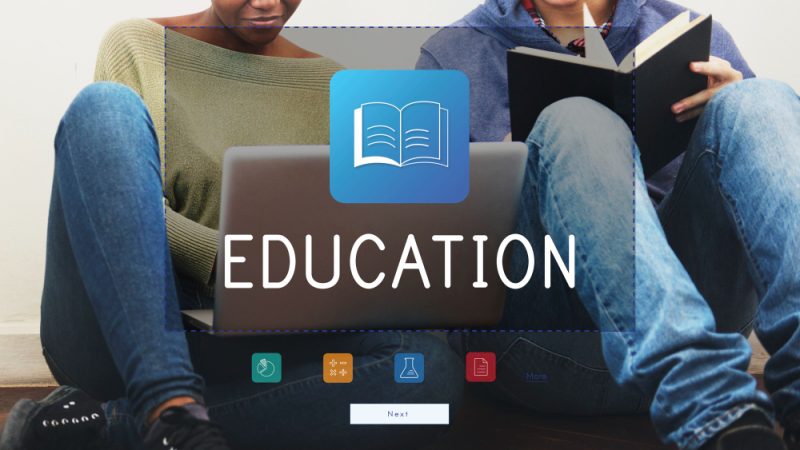Tips for Personalizing Remote Learning: Making Education Your Own Journey

With its flexibility and ease for students of all ages, Remote Education has become an essential component of our educational environment. Personalization, however, plays a significant part in boosting the Remote Education experience when typical classroom environments are absent. In this article, we’ll delve into effective tips for personalizing remote learning, ensuring that learners can thrive in this virtual educational environment.
Moreover, you’ll be pleased to discover that using online tutors. You’ll also be happy to know that by hiring online tutors and requesting them to take my test for me. Additionally, reputable academic services like Scholarly Help, Brainly, and Chegg now offer the ability to choose an online instructor.
Understanding Personalized Remote Learning
Customizing the learning process to suit the distinct strengths, weaknesses, interests, and learning style of each individual learner is known as personalized Remote Education. It goes beyond universal instruction and urges students to take charge of their own educational journey.
The Pros of Remote Learning
-
Flexibility in Learning Schedule
Its flexibility is one of the best things about Remote Education. Students have access to lectures and course materials whenever it is convenient for them, which enables them to juggle their studies with other commitments like employment or family obligations.
-
Access to Diverse Resources
A vast array of resources is available through distance learning. Learners can explore a variety of materials that cater to various learning styles, from interactive simulations and multimedia content to online libraries and research databases.
-
Global Learning Opportunities
Remote learning eliminates geographic limitations. Students have the option to engage in programs provided by organizations throughout the globe, exposing them to a variety of viewpoints and cultures and enhancing their educational experience.
Challenges of Remote Learning
-
Lack of Face-to-Face Interaction
The lack of in-person interaction is one of the biggest problems with distant learning. It can be more difficult to duplicate in virtual settings the real-time conversations and prompt clarifications that are provided in traditional courses.
-
Potential for Distractions
In a distance learning setting, it can be challenging to maintain attention. A student may find it harder to focus on their academics in the home because there are more distractions there.
-
Technical Issues
When studying online, technical issues are inescapable. Being frustrated and having a bad learning experience can be brought on by unstable internet connections or platform issues.
-
Self-Motivation and Time Management
Self-control and efficient time management are required for remote learning. Some students can find it difficult to maintain motivation and effectively manage their studies without a set routine.
Essential tips for personalizing remote learning
Here, we present valuable tips to help you make the most out of personalized Remote Education.
-
Creating a Personalized Study Space
Concentration and focus can greatly benefit from setting up a dedicated and relaxing study place at home. It can boost productivity and improve the learning environment to have a space that is clean and well-organized.
-
Setting Clear Learning Objectives
Learning objectives that are precisely stated give the student a path to follow while they study. They assist students in comprehending their goals and serve to motivate them throughout their academic careers.
-
Adapting Learning Styles
Every person has a particular learning mode, whether it be kinesthetic, auditory, or visual. Learning can become more efficient and pleasurable by recognizing and adjusting to certain learning styles.
-
Utilizing Diverse Learning Resources
A wealth of educational resources can be found on the internet. Diversifying materials ensures that learning remains interesting and engaging, from online courses and eBooks to instructional films and interactive simulations.
-
Interactive Learning Tools
Interactive learning opportunities are provided via a variety of online tools. These resources, which include games, quizzes, and virtual laboratories, can enhance and energize learning.
-
Fostering Self-Motivation
A significant degree of self-motivation is required for remote learning. Students can stay motivated and on track by setting goals, practicing discipline, and recognizing accomplishments.
-
Regular Progress Assessment
Learners can monitor their progress by periodically self-evaluating and reflecting. It’s an opportunity to acknowledge achievements and pinpoint problems that require further focus.
-
Collaborative Learning Online
It promotes a sense of community and offers chances for collaborative learning to interact with colleagues through online discussion boards and group projects.
-
Incorporating Real-World Applications
Understanding and relevance of learning materials can be increased by connecting them to practical applications. Additionally, it demonstrates how useful the knowledge being obtained is.
-
Balancing Screen Time
Being in front of a screen for extended periods of time can be exhausting. Online and offline activities should be combined to minimize burnout and to improve general well-being.
-
Maintaining Communication with Instructors
In Remote Education, clear contact with the instructors is crucial. Learning can be improved by requesting clarification, asking questions, and taking part in online office hours.
Future Trends in Remote Learning
-
Integration of Virtual Reality and Augmented Reality
Remote Education is about to undergo a revolution thanks to virtual and augmented reality as technology develops. Immersive experiences can help people understand and remember difficult ideas.
-
Personalized Learning Paths
Algorithms for adaptive learning adapt lessons to each student’s needs and development. This strategy maximizes learning effectiveness and supports a variety of learning styles.
-
Enhanced Data Analytics for Performance Evaluation
In remote education, data analytics will be crucial. Data on student performance can be analyzed by teachers to pinpoint areas for development and improve their pedagogical approaches.
Conclusion: Embracing the Future of Education
A new era in education has begun with the advent of remote learning, which has lowered obstacles and increased opportunities for students all around the world. Despite obstacles, creative approaches and improvements in technology keep changing how we learn. Accepting Remote Education can enable people to take charge of their education and succeed in a constantly changing digital environment.
Frequently Asked Questions
-
What is personalized Remote Education?
Personalized Remote Education involves customizing the educational experience to meet individual students’ needs, learning styles, and preferences.
-
Why is personalization important in remote learning?
Personalization enhances engagement, comprehension, and independent thinking, better preparing students for real-world challenges.
-
How can educators overcome challenges in personalized Remote Education?
Educators can overcome challenges by maintaining a balance between structure and flexibility, addressing technical proficiency, and ensuring equity and inclusion.
-
What role does technology play in personalized learning?
Technology, such as adaptive learning platforms and interactive tools, helps educators tailor learning experiences and track students’ progress effectively.
-
How does personalized Remote Education promote lifelong learning?
By fostering a love for learning and adapting to individual needs, personalized Remote Education encourages ongoing knowledge-seeking beyond formal education.






